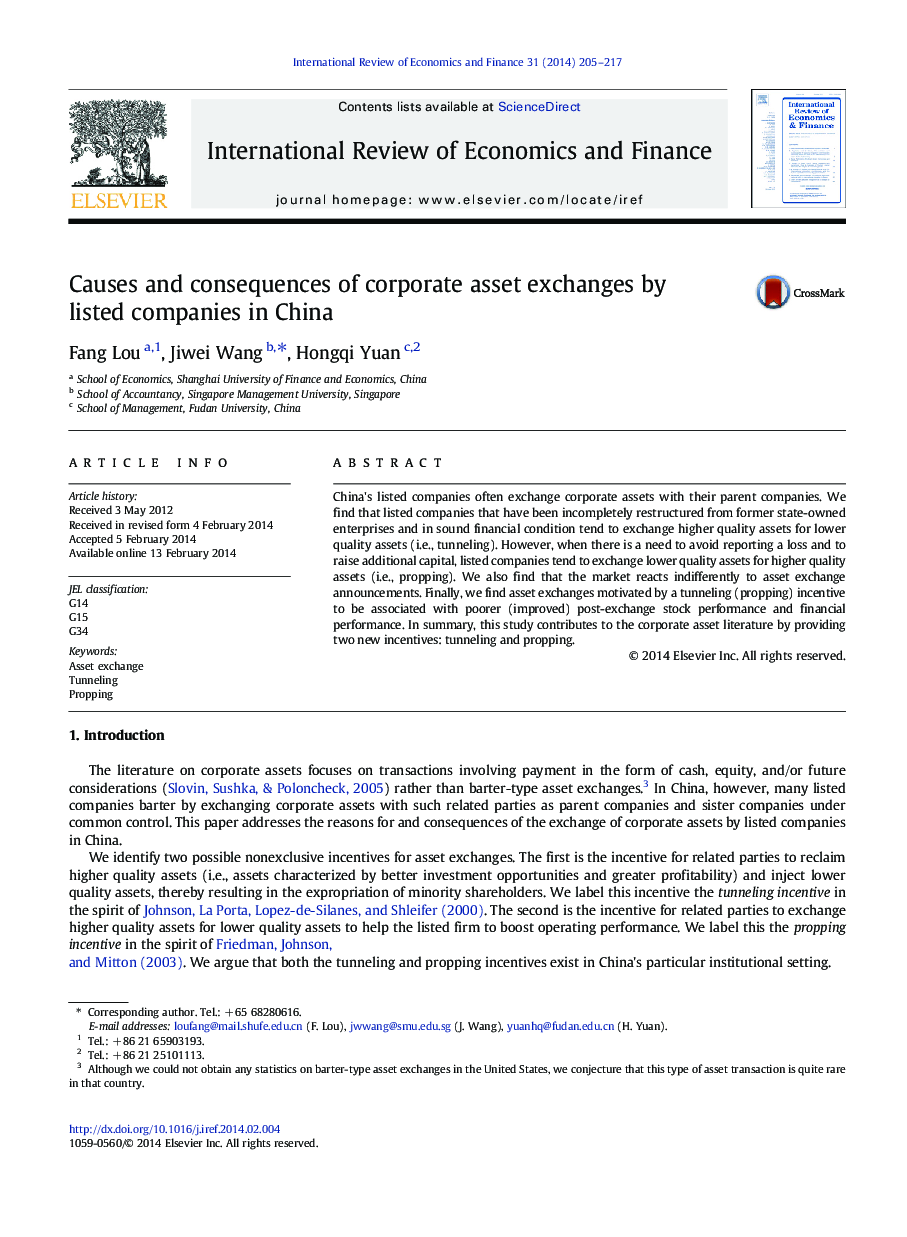| Article ID | Journal | Published Year | Pages | File Type |
|---|---|---|---|---|
| 5083571 | International Review of Economics & Finance | 2014 | 13 Pages |
â¢China's listed companies exchange corporate assets with their parent companies.â¢Asset exchanges are motivated by both tunneling and propping incentives.â¢The market reacts indifferently to asset exchange announcements.â¢Tunneling (propping) results in poorer (improved) post-exchange performance.
China's listed companies often exchange corporate assets with their parent companies. We find that listed companies that have been incompletely restructured from former state-owned enterprises and in sound financial condition tend to exchange higher quality assets for lower quality assets (i.e., tunneling). However, when there is a need to avoid reporting a loss and to raise additional capital, listed companies tend to exchange lower quality assets for higher quality assets (i.e., propping). We also find that the market reacts indifferently to asset exchange announcements. Finally, we find asset exchanges motivated by a tunneling (propping) incentive to be associated with poorer (improved) post-exchange stock performance and financial performance. In summary, this study contributes to the corporate asset literature by providing two new incentives: tunneling and propping.
